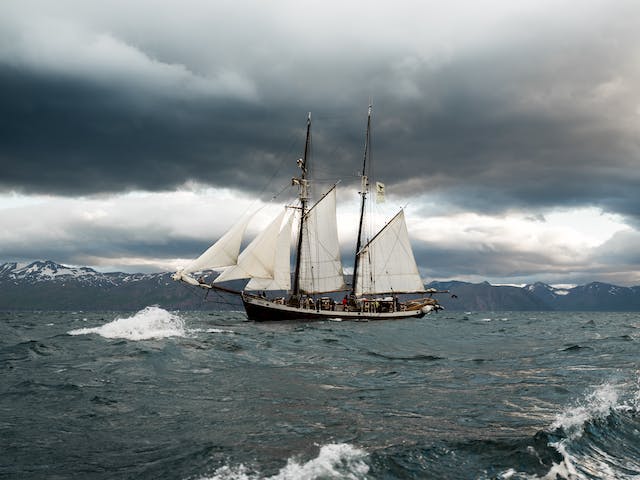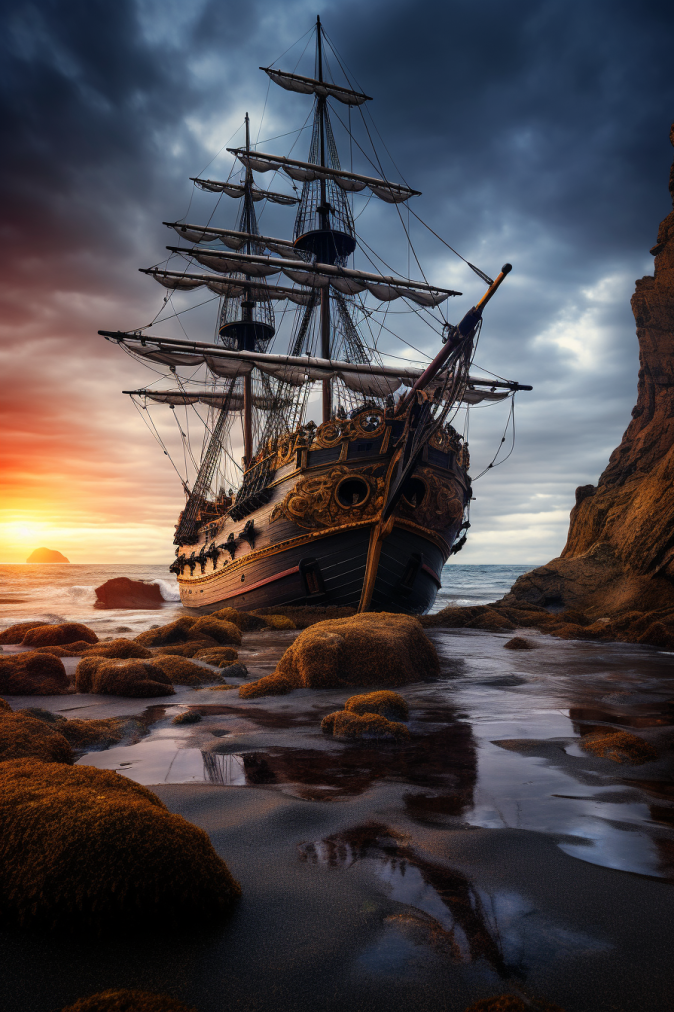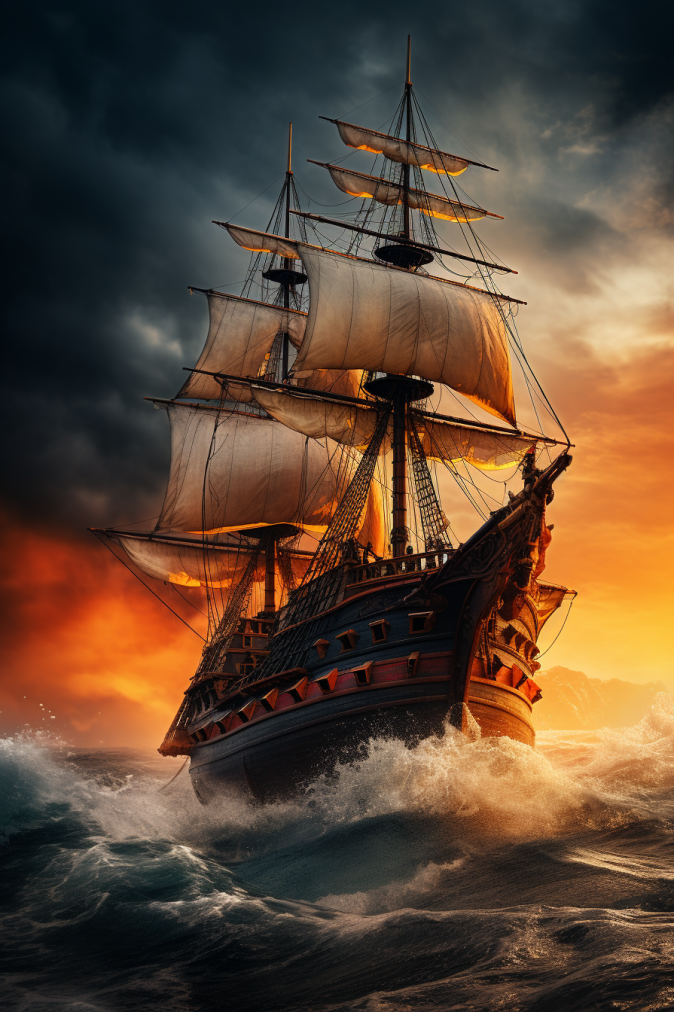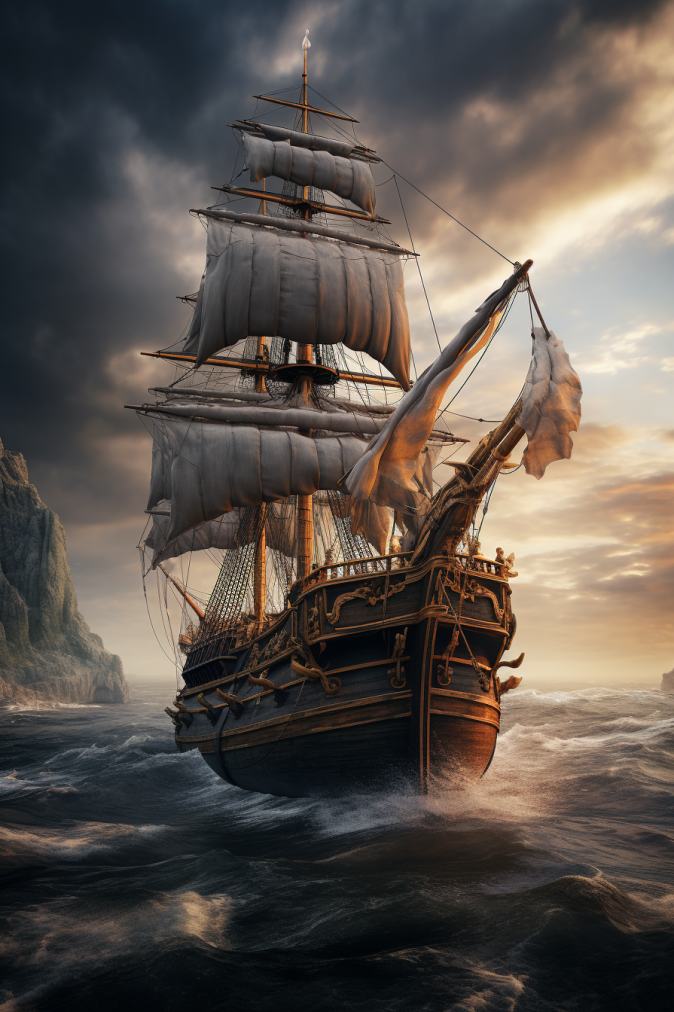
Embarking on the chronological journey of the Age of Exploration unveils an enthralling narrative woven with the daring exploits of adventurers, the revelation of uncharted territories, and groundbreaking discoveries.
Throughout this exploration, we will delve into pivotal events that not only defined this remarkable era but also laid the groundwork for significant historical transformations.
Join us as we navigate through key milestones, unraveling the stories of intrepid explorers and examining the profound impact of their journeys on the global landscape.
Which Events Led to the Age of Exploration?
The Age of Exploration was ignited by a confluence of factors, driven by the interconnected realms of economic, political, and technological dynamics.
This era unfolded in response to the compelling forces that shaped the course of history.
Desire for new trade routes
One significant catalyst behind the Age of Exploration was the fervent quest for alternative trade routes.
As existing routes faced challenges and limitations, nations sought new pathways to access valuable resources and establish lucrative trade connections.
Pursuit of wealth and glory
A relentless pursuit of wealth and glory propelled explorers into uncharted territories.
Nations vied for economic supremacy and sought to enhance their prestige through the acquisition of new lands, resources, and territories.
Advancements in navigational technology
Crucially, the age was marked by significant advancements in navigational technology.
Innovations such as improved ship designs, navigational instruments, and cartography empowered explorers to venture into unknown waters with greater precision and confidence.

Timeline of the Age of Exploration
Early Explorations (1400s-1492)
In the 15th century, a series of pivotal events unfolded that marked the onset of the Age of Exploration.
1415: Prince Henry the navigator’s expeditions
In 1415, Prince Henry of Portugal, renowned as Prince Henry the Navigator, played a pivotal role in sparking the Age of Exploration.
His expeditions along the African coast were driven by the ambition to uncover a sea route leading to the lucrative spice markets of India and Asia.
This marked a significant catalyst for the era of maritime exploration.
1482: Bartolomeu Dias and the Cape of Good Hope
A groundbreaking moment occurred in 1482 when Portuguese explorer Bartolomeu Dias successfully rounded the treacherous Cape of Good Hope.
This achievement provided concrete evidence of a viable sea route to the East, marking a significant milestone in maritime exploration.
1492: Christopher Columbus reaches the Americas
Sponsored by Spain, Christopher Columbus made history in 1492 by reaching the Americas.
His voyage not only unveiled a New World but also set in motion an era of intense European exploration and colonization.
Columbus’s journey had far-reaching consequences, reshaping global trade, culture, and geopolitical dynamics.
The Golden Age of Exploration (1500s-1590s)
The 16th century witnessed a flourishing period known as the Golden Age of Exploration, characterized by daring voyages and groundbreaking achievements.
1498: Vasco da Gama’s voyage to India
Portuguese explorer Vasco da Gama achieved a historic milestone in 1498 by becoming the first European to sail to India.
By circumnavigating the treacherous Cape of Good Hope, Da Gama opened new maritime routes, establishing crucial connections with the lucrative spice markets of the East.
1519-1522: Ferdinand Magellan’s circumnavigation
Sponsored by Spain, Ferdinand Magellan orchestrated the first successful circumnavigation of the globe from 1519 to 1522.
This groundbreaking expedition not only demonstrated the Earth’s roundness but also unveiled the sheer vastness of the world.
Magellan’s journey left an indelible mark on maritime history, reshaping perceptions of the Earth’s dimensions.
1533-1535: Jacques Cartier explores Eastern Canada
Embarking on a significant journey from 1533 to 1535, French explorer Jacques Cartier explored the St.
Lawrence River, laying claim to parts of eastern Canada for France.
His explorations became foundational for French influence in North America.
1577-1580: Sir Francis Drake’s circumnavigation
Englishman Sir Francis Drake achieved the second recorded circumnavigation of the globe from 1577 to 1580, following in the footsteps of Magellan.
Drake’s voyage not only contributed to England’s maritime prowess but also brought valuable insights into global navigation.

Late Explorations and Colonization (1600s-1700s)
The 17th and 18th centuries marked a continuation of global exploration and colonization, shaping the course of history.
1607: Establishment of Jamestown
The year 1607 witnessed the foundation of Jamestown, a monumental event symbolizing the birth of the inaugural permanent English colony in North America.
Beyond being a milestone for English influence, Jamestown played a crucial role in the broader context of New World colonization, shaping the course of history in the Americas.
1610: Henry Hudson explores the Hudson river
Dutch explorer Henry Hudson explored the Hudson River in 1610, laying claim to the region for the Netherlands.
This exploration played a role in shaping Dutch interests in North America.
1642: Abel Tasman’s Pacific discoveries
Dutch navigator Abel Tasman made significant discoveries in 1642, including Tasmania, New Zealand, and various Pacific islands.
Tasman’s voyages expanded European knowledge of the Pacific region.
1700s: Continued global exploration and colonization
Throughout the 1700s, European powers persisted in their exploration and colonization efforts worldwide.
Territories in Australia, Africa, and the Americas were subject to ongoing exploration, leading to the establishment of colonies that would significantly impact global geopolitics.
The Decline of Exploration (18th Century)
As the 18th century unfolded, a discernible decline in the enthusiasm for exploration became evident.
This waning interest can be attributed to a confluence of factors that collectively contributed to a diminishing fervor in undertaking new exploratory endeavors.
Geopolitical conflicts
One notable factor influencing the decline was the prevalence of geopolitical conflicts.
Nations were engrossed in power struggles and territorial disputes, diverting resources and attention away from ambitious exploration initiatives.
The political landscape of the time was characterized by tensions that hampered the collaborative and expansive spirit of earlier exploration eras.
Economic challenges
Economic constraints played a pivotal role in the waning interest in exploration during the 18th century.
Nations, having invested heavily in colonization and territorial expansion, found themselves grappling with financial challenges.
The economic burden of sustaining colonies and managing overseas territories led to a redirection of resources, with exploration taking a backseat to fiscal considerations.
Shift in focus towards existing colonies
A noteworthy shift in focus emerged as nations turned their attention towards consolidating and managing existing colonies.
The emphasis shifted from venturing into the unknown to the strategic administration and exploitation of established territories.
This transition reflected a pragmatic approach as nations sought to maximize the economic and strategic benefits of their existing colonial holdings.

Conclusion
The Age of Exploration stands as a testament to human curiosity, bravery, and the relentless pursuit of the unknown.
As we navigate through the chronological milestones, it becomes evident that this era reshaped the world, fostering cultural exchanges, trade networks, and the blending of diverse civilizations.
The legacy of these intrepid explorers endures in the global connections and exchanges that define our modern world.
The Age of Exploration may have waned, but its impact echoes through the annals of history, reminding us of the indomitable spirit that fueled this extraordinary journey.



